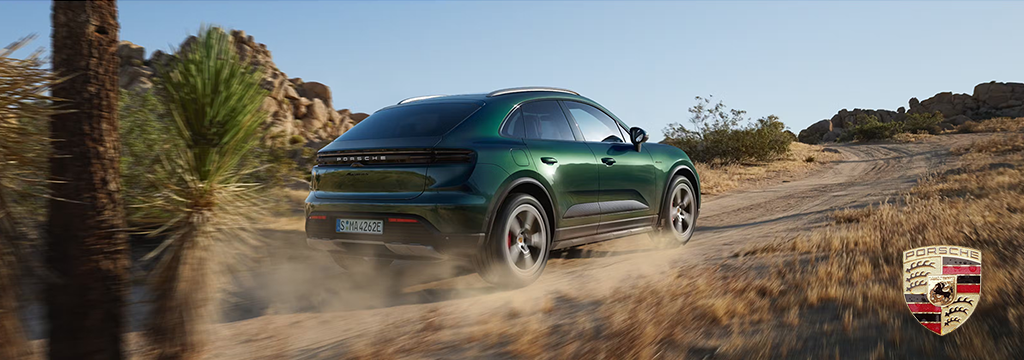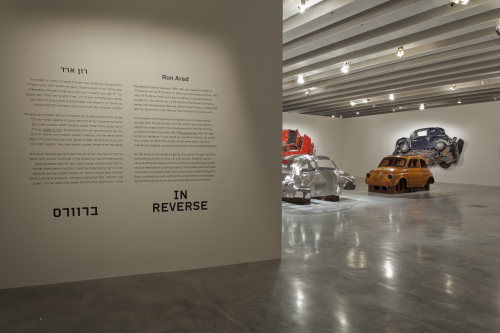 click > enlarge
click > enlarge
Decades ago, as a child, the designer Ron Arad found a toy police car on the street in Tel Aviv, run over and flattened. He has kept that car ever since. Now he has flattened six full sized, real cars and hung them on the wall of a museum — the Design Museum Holon in Israel–whose building Arad also designed. The squashed old Fiat 500s are one of a series of pieces in a show called In Reverse that might be said to be works of art exploring the nature of design. The Fiat 500 was the car of the people, he said—and of his generation. He compares them to children’s drawings of cars or cartoons of wrecked cars. They also look like gigantic versions of bugs mounted on microscope slides. Or they look like Pressed Flowers, the title he has given them in the show..
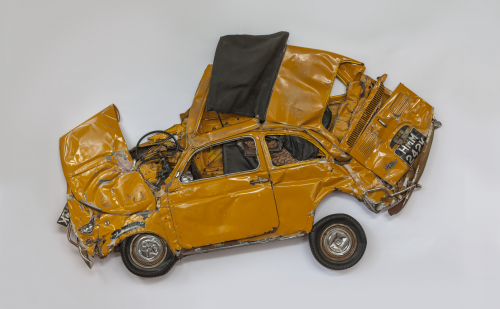 pressed flower yellow 2013
pressed flower yellow 2013
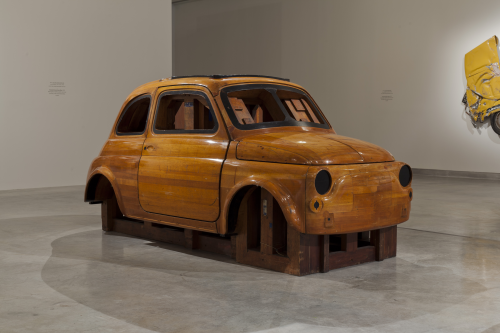
Also on display is a wonderful wooden model of the 500, used to shape metal, from the Fiat Archive and Museum. Arad also offs a sculpture called Roddy Giacosa –the name plays on Dante Giacosa, designer of the 500, made of rods of stainless steel arranged to take the shape of a Fiat 500. / images courtesy of ron arad
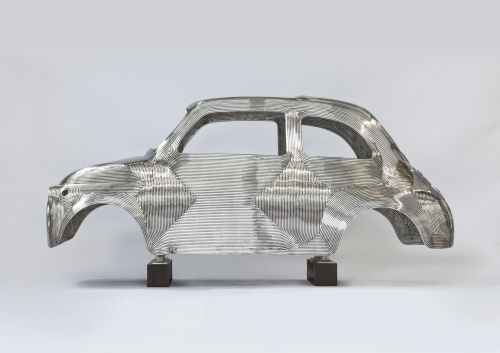 roddy giacosa
roddy giacosa
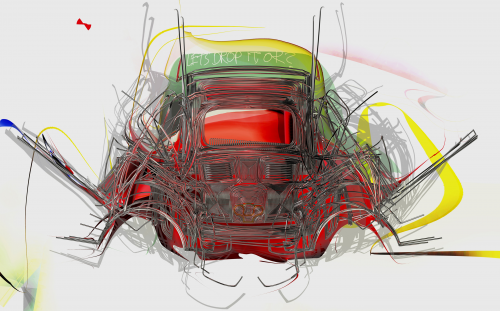
1>6 roddy giacosa
7 wooden fiat 500
8>18 pressed flowers (various colors including ‘rust’)
20>21 let’s drop it, ok?
<a href=" about phil patton
about phil patton
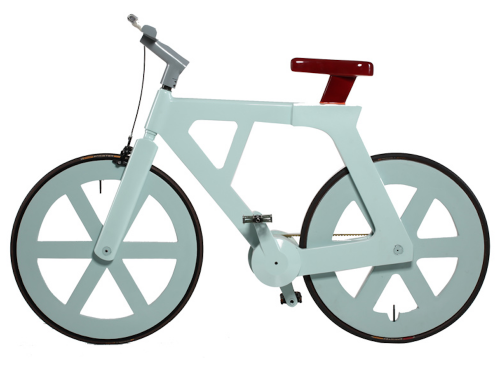 click > enlarge
click > enlarge
Three years ago Israeli engineer Izhar Gafni decided to design the impossible: a fully functional bike made almost entirely out of recycled cardboard. Like anyone entering unchartered waters, Gafni spent most of his time in the R&D phase. “Since there was no know-how with regards to the cardboard materials, the first two years were devoted to learning the properties and behavior of the material,” he said.
To lend the materials strength, Gafni applied the principals of origami. “You fold it once and then it doesn’t become twice the strength, it’s almost three times the strength. I took it from there and did the same thing with cardboard.” After the cardboard is cut and folded into shape, it’s painted with a waterproof, fire retardant coating specially engineered by Gafni, who then finishes it off with lacquer.
Not only is manufacturing process low impact, the bike is cost effective and lightweight. An adult bike weighs 20 pounds and costs $9.50, and the children’s version weighs 7.75 pounds and costs a mere $.475. Gafni and his business partners at the Israeli investment group ERB are still raising funds and tweaking the design, but Gafni said the finish product will also have an electric option.

about perrin drumm
 click > enlarge
click > enlarge
Sometimes design weeks can really burn you out. You start each day fresh, but as you’re assaulted by one fabulous chair or sleek table or spectacular lamp after another you start to fade out. Full disclosure: I’m not in Milan this week but I bet that if I was and I was starting to zone out, Hilla Shamia‘s “Wood Casting” would snap me right out of my design induced stupor.
Shamia is an Israeli product designer who works mainly with metal and has only recently begun to introduce wood into her pieces. Her first products featured a range of metals in varying states of rust and decay, but now her products use mostly shining aluminum fused with the warmth of wood.
Her “Wood Castings” (shown here) are made using a whole tree trunk. Molten aluminum is poured directly into the wood, burning the exterior. A plank is then cut lengthwise, flush with the metal base. The final result are unique, one-of-a-kind pieces, their shape and fusing determined by the type of the wood and the pour of the molten metal itself.




about perrin drumm
 click > enlarge
click > enlarge pressed flower yellow 2013
pressed flower yellow 2013
 roddy giacosa
roddy giacosa about phil patton
about phil patton